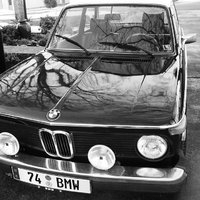How to boost the performance of your BMW
By Catalogs Editorial Staff
Table of Contents

Power up your BMW!
A BMW is the epitome of sports car handling and performance. As such, these cars have developed a enormous aftermarket that caters to enhancing their speed and agility. To boost the performance of your BMW means entering a world of people and businesses that caters to what these German engineered wonders can truly do. But what can you do on your own? Let’s start with weight.
Shedding pounds always makes a car go just a little bit faster and better. What can you take off? It depends on your situation. Let’s take the example of a 1976 BMW 2002. In the mid-1970s, state and national smog controls were just coming into being. They weighed every car down and tremendously hurt performance.
If your vintage BMW is hurting in this way, check out your options. Your state may allow you to remove the smog equipment if your car is of a certain age. Or it may let you remove this gear if you register your vehicle as an historic vehicle. That historic status may only allow you to drive a certain amount of miles each year so be careful when you investigate these choices
Back to losing the weight. Removing smog gear such as described may save you fifty pounds. If it is legal, you can save more weight by replacing the American bumpers on your BMW with the sleek and slimmer European models. Don’t need to carry passengers? Some folks remove the back seat. Others leave the full size spare at home and take along a can of puncture seal instead. It depends on how fanatical you want to get. Other things have to be done by others.
Performance isn’t just speed. It’s also handling. When they need replacing, investigate performance tires offered by many dealers. In the case of our mid-1970’s BMW, tires have come a long way since the model 2002 came out; you’ll note a serious case of better handling with new rubber on the road.
Shocks and springs have also gotten better. Just remember to get BMW compatible parts whenever you upgrade.
~
If you have an older BMW with a carburetor, you’ll need to find a shop that can work on it. Most shops don’t have a mechanic who knows carburetors, but they can often recommend a place that will service them. A local BMW club is a great way to find a lead on the right mechanic. Once your car is in the shop, the carb can be tuned for performance. You’ll get less gas mileage but you did want to boost the performance of your BMW, didn’t you?
Speaking of gas, you may find your BMW runs quicker and quieter with higher octane fuel. Check your owners’ manual to make sure you are filling up with the right grade. If you want better mileage and reliability instead of performance, you may want to check on fuel injection conversions kits to replace your carburetor.
I mentioned an owner’s manual. It’s absolutely essential to have a shop manual, or something equivalent, when you are making changes to your BMW. There are subtle but significant differences with many parts that you might think are generic. A brake light bulb bought at a discount store, for example, may fit the socket in your car, but it may also draw the wrong amount of current. It could burn out early or not work at all. German engineers are not quirky but are always purposeful. There’s a reason German sports cars are legendary for quality and durability; every detail is addressed and you can not make short cuts around their engineer’s specifications.
Oh, and here’s a tip that will boost your wallet’s performance. Call an insurance company that specializes in vintage automobiles when it’s time to insure your BMW. They could save you a lot of money compared to the company that insures your every day car. A surprising amount. And, again, get with a BMW group or association that will help you with advice. They’ll know what boosts performance for the least amount of labor and cost.
Popular Savings Offers











